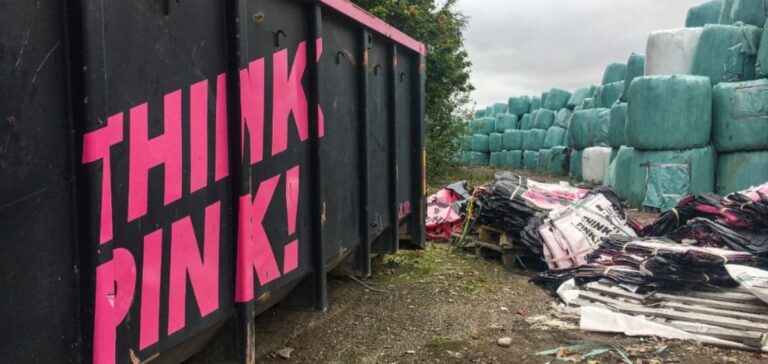One of Sweden’s largest environmental crime cases concluded with the prosecution requesting prison terms for former executives of the waste management company Think Pink. The company is suspected of illegally stockpiling or abandoning industrial waste at 21 sites across the country, without processing it as contractually agreed with its clients.
An operation focused on unsegregated waste collection
Think Pink offered recycling services to a wide range of clients, including municipalities, housing cooperatives and construction firms. The services covered waste streams such as construction debris, electronic devices, toys, plastics and tyres. However, according to the prosecution, no sorting was ever conducted, with waste reportedly stored outdoors, sometimes near protected natural areas.
The prosecution claims this approach allowed the company to cut costs significantly by avoiding the expense of decontamination or regulatory recycling. Prosecutor Anders Gustafsson stated that “the objective was purely financial,” noting that proper treatment in line with the law would have sharply reduced the company’s margins.
Five accused and over 45,000 pages of evidence
Five individuals are named in the case, including Bella Nilsson, former head of Think Pink, now known as Fariba Vancor. Dubbed “the queen of garbage” by the media, she denied all charges, telling the court: “We did everything properly, legally.” The prosecution also requested six-year sentences for her ex-husband Thomas Nilsson, co-founder of the firm, and Leif-Ivan Karlsson, a businessman known for his appearances on reality television and his brief tenure at Think Pink.
Two other associates, waste broker Robert Silversten and logistics organiser Tobias Gustafsson, face the same sentence. All five denied wrongdoing. The trial, which began in September 2024 following a multi-year investigation, is based on a file exceeding 45,000 pages.
Disputed and quantified environmental impact
Identified pollutants include lead, mercury, arsenic and polychlorinated biphenyls (PCBs), which are classified as persistent organic pollutants. The prosecution cited serious risks to human, animal and plant health, although no independent quantified health assessment has been provided.
Several affected municipalities are seeking financial compensation. The municipal council of Botkyrka, south of Stockholm, has filed claims for the management of two spontaneous fires that broke out in 2020 and 2021 at illegal storage sites. The fires burned for months and required extensive soil decontamination operations near nature reserves.
Estimated clean-up bill reaches SEK260mn
Compensation claims total SEK260mn (€23mn, $24.7mn), mainly covering cleaning and soil restoration costs. A final ruling from the court is expected on June 17. No information has been provided regarding potential proceedings against clients who outsourced their waste management to Think Pink.






















